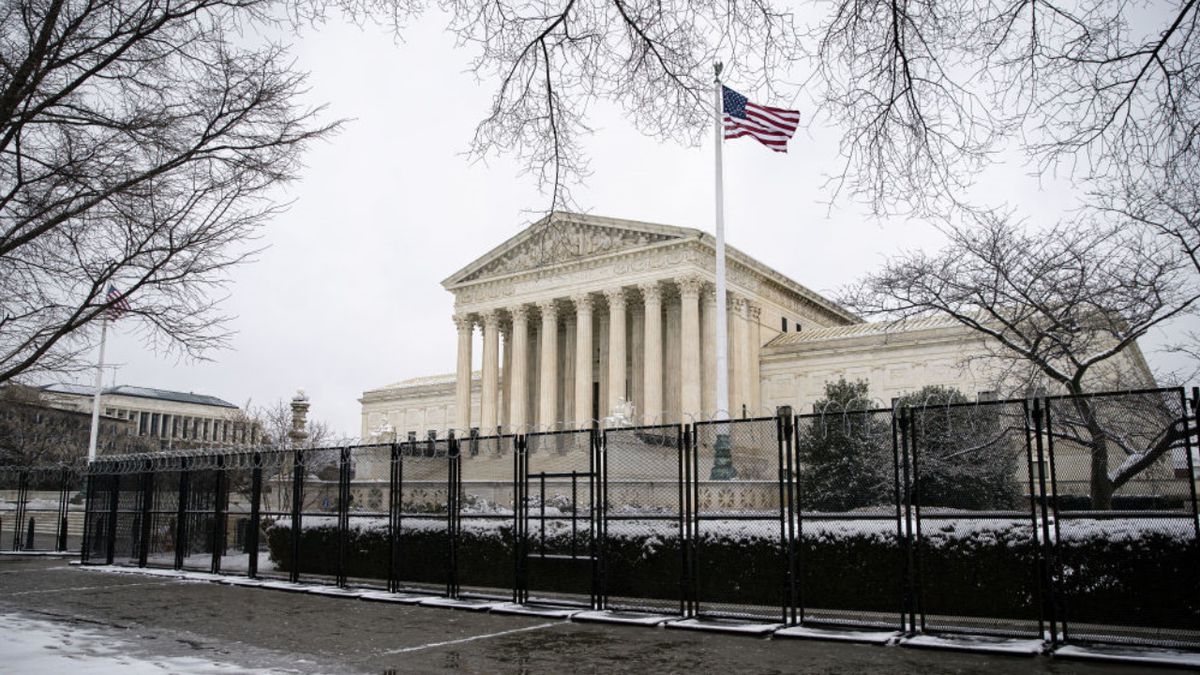The U.S. Supreme Court delivered a major religious liberty victory to California churches over the weekend, ending California’s outright ban on indoor worship during the pandemic but allowing the state to limit attendance to 25 percent capacity in some areas.
The justices, in a 6-3 decision in a pair of orders late Friday, issued an injunction against California Gov.
Gavin Newsom, prohibiting his administration from enforcing its total ban on indoor worship.
The lawsuits were brought by two churches – South Bay United Pentecostal Church and Harvest Rock Church – although the ruling impacts all houses of worship in the state.
Following the orders, Newsom’s office on Saturday revamped its restrictions to limit churches in areas of major outbreaks to 25 percent capacity.
Churches in areas with only moderate or minor outbreaks are limited to 50 percent, the Associated Press reported.
Liberty Counsel, which represented Harvest Rock Church, applauded the court’s action.
California had had the nation’s “most severe restrictions” on worship, Liberty Counsel said in a statement.
“Finally, Governor Gavin Newsom’s total ban on worship has come to an end,” said Liberty Counsel founder and chairman Mat Staver.
“A pandemic is no excuse for violating the Constitution. Until today, California imposed the most severe restrictions on places of worship. Not anymore. We will continue to press this case until religious freedom is totally restored.”
The court’s conservative bloc sided with the churches: Supreme Court Justice John Roberts and Justices Clarence Thomas, Neil Gorsuch, Brett Kavanaugh, Samuel Alito and Amy Coney Barrett.
Roberts, in a concurring opinion, asserted that not allowing anyone to worship in even the “most cavernous cathedral” did not reflect “expertise or discretion” but instead
“insufficient appreciation or consideration of the interests at stake.”
The Constitution, he wrote,
“entrusts the protection of the people’s rights to the Judiciary.”
It was not a total victory for churches, though.
The court upheld the state’s ban on indoor singing and chanting, yet left open the possibility it could be challenged in court later.
Barrett, in a concurring opinion joined by Kavanaugh, wrote that it remained unclear whether the ban on singing “applies across the board” to churches and everyone else.
If it is discovered that churches are being singled out, she wrote, then the regulation “cannot be viewed as neutral” and can be challenged.
Three justices – Thomas, Alito and Gorsuch – would have granted the churches’ request in full and overturned the restrictions on singing.
“No doubt, California will argue on remand, as it has before, that its prohibitions are merely temporary because vaccinations are underway,” Gorsuch wrote in a concurring opinion journey by Thomas and Alito.
“But the State’s ‘temporary’ ban on indoor worship has been in place since August 2020, and applied routinely since March. California no longer asks its movie studios, malls, and manicurists to wait. And one could be forgiven for doubting its asserted timeline. Government actors have been moving the goalposts on pandemic-related sacrifices for months, adopting new benchmarks that always seem to put restoration of liberty just around the corner. As this crisis enters its second year – and hovers over a second Lent, a second Passover, and a second Ramadan – it is too late for the State to defend extreme measures with claims of temporary exigency, if it ever could.”

